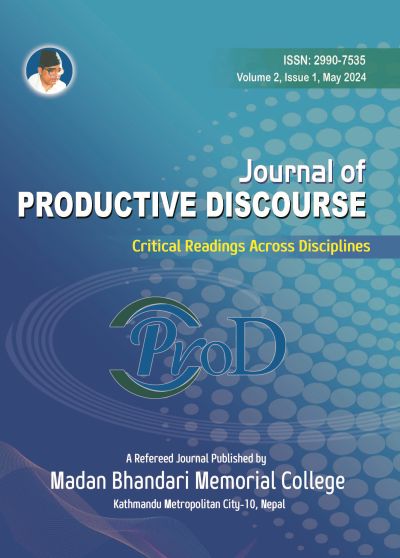Local Governance Based on Citizens’ Opinion Method in Municipalities of Madhesh Province
DOI:
https://doi.org/10.3126/prod.v2i1.65738Keywords:
governance, local government, Madhesh Province, citizen, indicatorsAbstract
The local-level election took place in 2017, marking the first such event after two decades following the restructuring of Nepal following the new Constitution. Subsequently, a second local-level election occurred in 2022, facilitating the selection of municipal representatives. Over six years, citizens have had the opportunity to benefit from the services provided by the local government (LG), aligning with the constitutional principle of delivering quality services directly to the people. Achieving this objective necessitates a well-established structure, efficient processes, and competent actors, all guided by the principles of good governance. Nepal's performance, as measured by the World Bank based on World Governance Indicators (WGI), has consistently fallen below the global average across six key indicators spanning from 1996 to 2022. Against this backdrop, efforts have been directed towards assessing the status of local governance in the Madhesh Province and offering viable suggestions for improvement to bolster the federal democratic system. Hence, this study focuses on the intellectual community within the province as its sample population. As opinions were collected, the research revealed that local governance in the Madhesh Province falls below the average standard. In light of this circumstance, local governments should enhance and reinforce local governance to support the institutionalization of federalism and democracy.
Downloads
Downloads
Published
How to Cite
Issue
Section
License
Copyright (c) 2024 The Author(s)

This work is licensed under a Creative Commons Attribution-NonCommercial 4.0 International License.
This license allows reusers to distribute, remix, adapt, and build upon the material in any medium or format for noncommercial purposes only, and only so long as attribution is given to the creator.




